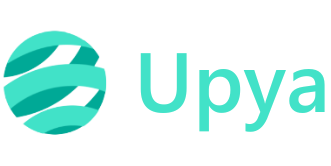Improved cookstoves, solar ovens, and clean cooking technologies do more than reduce emissions, they transform lives.
These TPDDTEC (Technologies and Practices to displace Decentralised Thermal Energy Consumption) carbon projects play a crucial role in cutting greenhouse gases and improving household health. Yet many still face challenges that hold them back from scaling effectively.
Paper forms, manual tracking, and fragmented systems often make it difficult to know who received which stove, how it’s being used, and whether the expected carbon and social impacts are being achieved.
Here’s where the biggest bottlenecks lie:
The Problem
Paper-based data collection: still common across many TPDDTEC projects, paper forms are error-prone and hard to verify. Even Excel-based systems quickly become unmanageable without coding expertise.
Disorganized household data → without unique IDs linking each improved biomass cookstove, oven, water heater, or solar cooker to its household beneficiary, projects risk weak verification and unclear household links—a recipe for chaos as the project scales.
Double counting→ occurs when the same emission reductions are claimed multiple times, often due to overlapping projects, inconsistent data, or unclear ownership. Human errors, miscommunication, and lack of centralized tracking increase the risk. This inflates reported carbon savings, undermines credibility, and reduces the market value of carbon credits. Ensuring accurate, unique, and verifiable data remains a persistent challenge.
Remote monitoring challenges → managing projects from afar or without reliable real-time data makes it nearly impossible to track progress or resolve inconsistencies quickly.
Fragmented systems → many projects juggle different tools for baseline surveys, verification, SDG tracking, and distribution. When key staff leave, undocumented knowledge disappears, disrupting operations and verification timelines.
High MRV costs and delayed verifications → meeting Gold Standard™ or other certification requirements can be slow and expensive. Disorganized data often leads to repeated field visits and long auditor back-and-forths, increasing costs and delaying credit issuance.
These barriers slow scale-up and reduce the credibility of carbon outcomes, making it harder for projects to attract investment or deliver consistent impact.
The Solution: Upya’s Digital Platform
✅Gold Standard™ surveys digitized: baseline project, and usage surveys are available in-app for field staff. Remote teams can validate, approve, or request corrections in real time. All data is stored securely in one platform, ensuring full traceability and due diligence.
✅ CRM with unique beneficiary profiles: each household has a digital record linking demographic and socioeconomic data, FPIC documentation, SDG tracking, and benefit-sharing events. Upya supports 15+ data types, including text, GPS, photos, NFC, Bluetooth, and more.
✅Inventory module: records equipment distributed to households, tracks usage, and monitors swaps/maintenance throughout the project lifetime. It ensures transparent data management, prevents double counting, and supports accurate reporting and verification of emissions reductions.
✅ Near real-time data collection: field staff collect data offline and sync once connected, allowing near-instant access for remote teams. This improves data accuracy, speeds up decision-making, and keeps projects audit-ready.
✅Audit-ready projects: all field data is stored in one structured system, simplifying verification and reporting for auditors, investors, and certification bodies.
✅Seamless team collaboration & knowledge retention: Upya ensures that all data, surveys, and documentation remain accessible even when staff change, preventing knowledge loss and maintaining operational continuity.
The Impact
By digitizing their TPDDTEC carbon projects, developers can:
Scale faster with consistent, verified data.
Reduce MRV costs and avoid verification delays.
Strengthen credibility with transparent, traceable records.
Deliver high-quality carbon credits and measurable SDG co-benefits.
Clean cooking projects are at the heart of climate action, and with the right digital tools, they can reach millions of households while maintaining integrity and impact.
💡 Whether you are in design, implementation, or monitoring, Upya helps ensure your TPDDTEC project meets certification standards while running efficiently in real-world conditions.
👉 Book a 1:1 with our team today to see how Upya can digitize your TPDDTEC carbon project.
